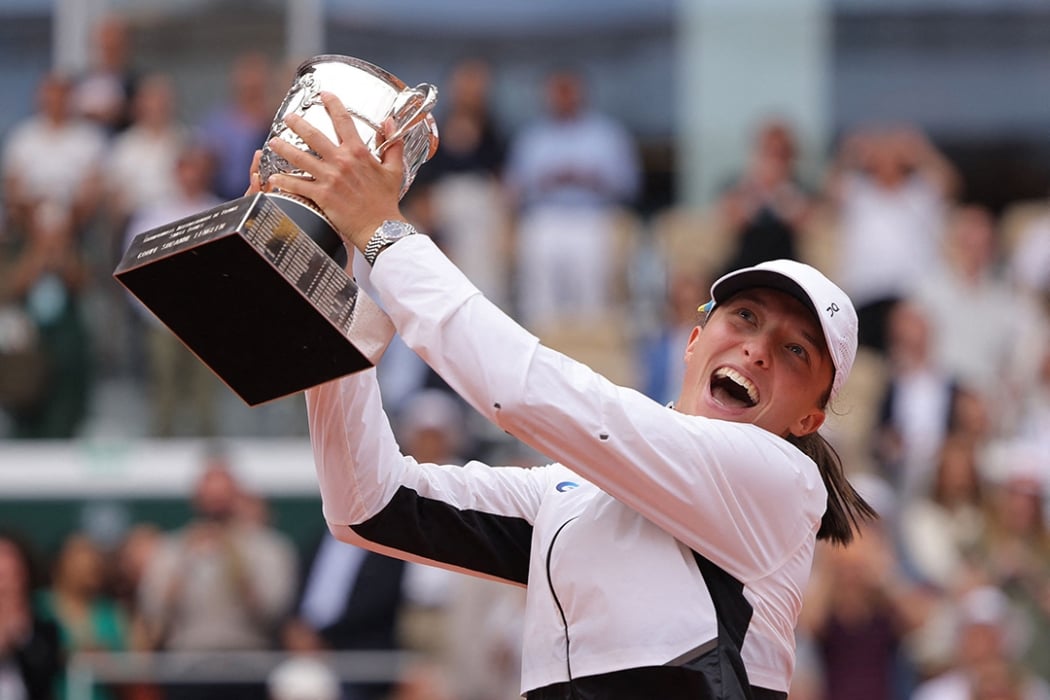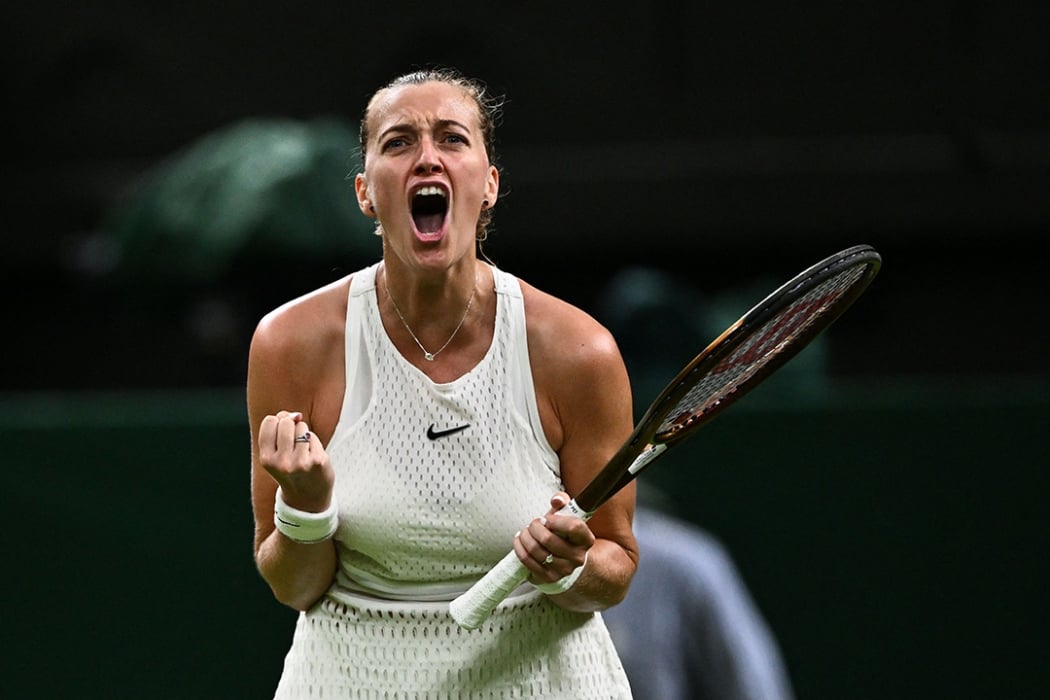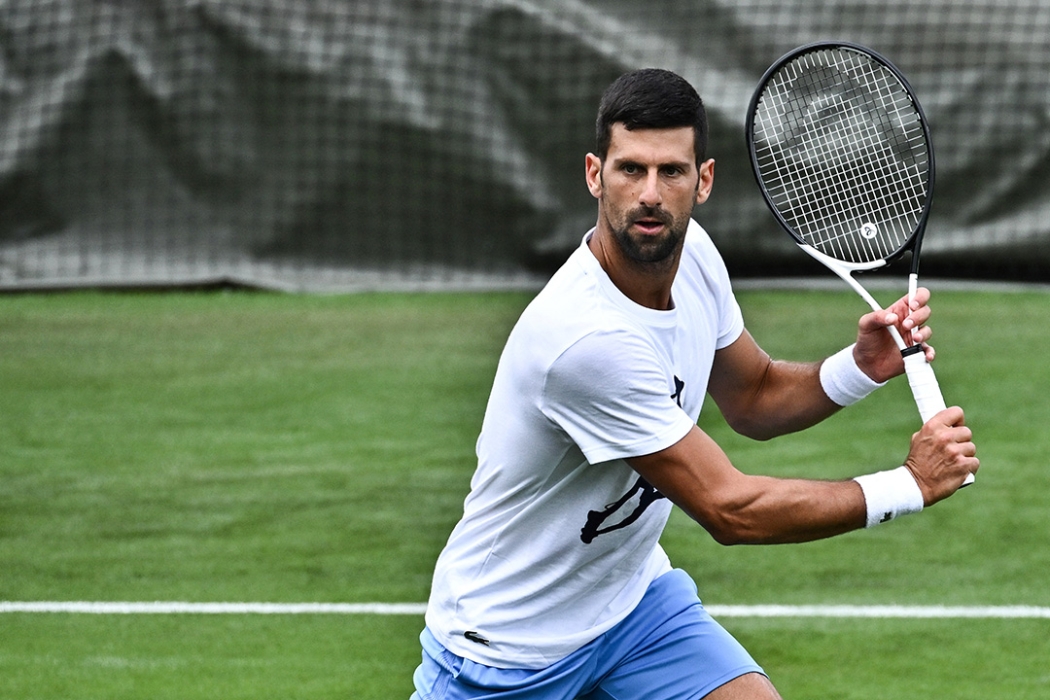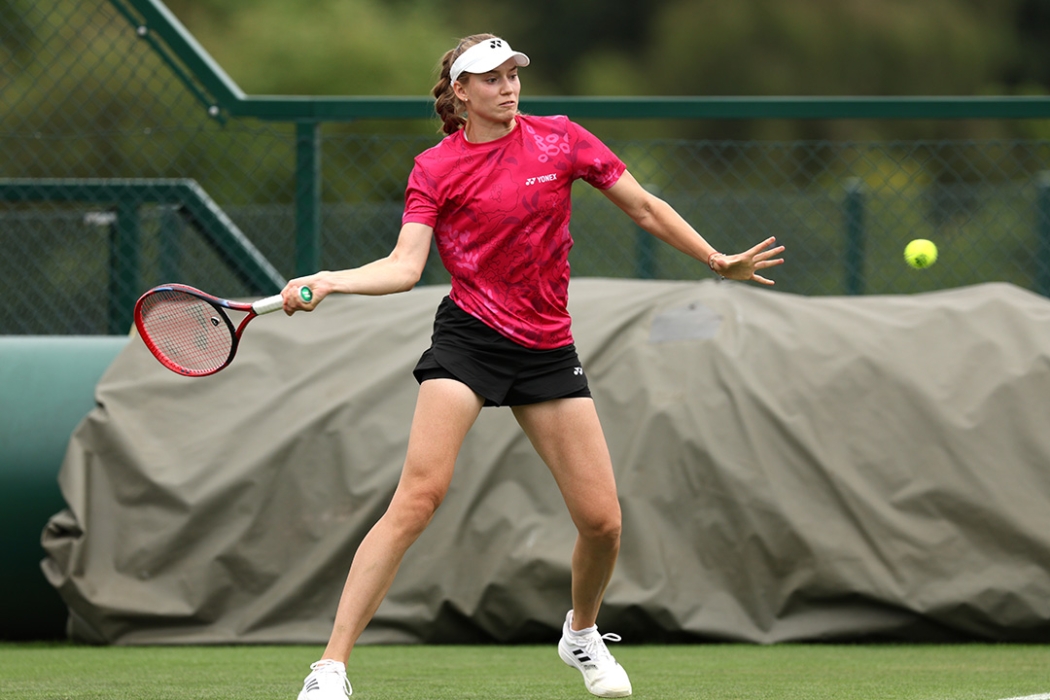For all the talk of her vulnerabilities on grass, Iga Swiatek is doing a stellar job of progressing at Wimbledon.
The world No.1 survived some tense moments late in the second set against 30th seed Petra Martic to beat the Croat 6-2 7-5, arriving in the fourth round for the second time in three years.
When she faces Belinda Bencic in the last 16, she will attempt to complete the one missing piece from her Grand Slam quarterfinal set.
“For sure it's a tournament where I feel most comfortable in terms of playing on grass,” said Swiatek, the recent Roland Garros champion who has now won 13 straight matches.
“I feel like I can really use my experience from previous years and add what I practiced before this tournament. I feel confident and I feel like I can play with more intuition.
“I do feel more relaxed. I think also because I won Roland Garros and I feel like after that the pressure is a little bit off because I reached my goal kind of for the season. I don't have to think about anything else other than playing.
“I feel like I have more free space in my head to develop my game and to work on my skills on grass.”
Swiatek’s latest win illuminated some numbers that describe a player perhaps more potent on grass than once thought, even with the knowledge she was a Wimbledon junior champion five years ago.
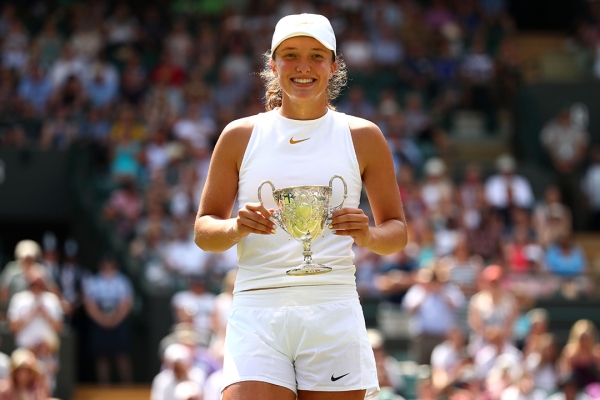
After dropping her first set of the grass-court season against Tatjana Maria in Bad Homburg last week, she has won 12 consecutive sets on the surface. Along with Petra Kvitova and Madison Keys, she is the only player undefeated on grass in 2023, with a 6-0 record.
This has improved her lifetime record on grass to 15-6, a winning rate of 71.43 per cent. And this has helped boost her success rate at Wimbledon above 70 per cent – eight wins in 11 matches – to see her join a select group of women in the Open era who have attained this benchmark at all four majors.
The prevailing wisdom is that players with aggressive, powerful, flat strokes can trouble Swiatek on grass, especially if they direct them into her forehand corner, given her bigger swing-path and extreme grip on that wing.
But former world No.35 Nicole Pratt says Swiatek possesses attributes, less discussed, that set her up for success.
“Don't underestimate the importance of movement on grass,” Pratt told ausopen.com.
“It's a different type of surface. Iga naturally stays really low, in her legs, on the ball.
“I just think she's got to find a way maybe to flatten out a few more shots; it will be interesting to see if she tries to do that a little more than what she does.
“And will she get as many serve-plus-forehand opportunities as she did at Roland Garros? She was something like serve-and-75 per cent forehands, and that's an incredible stat.
“Will she still be able to find those forehands (at Wimbledon)?”
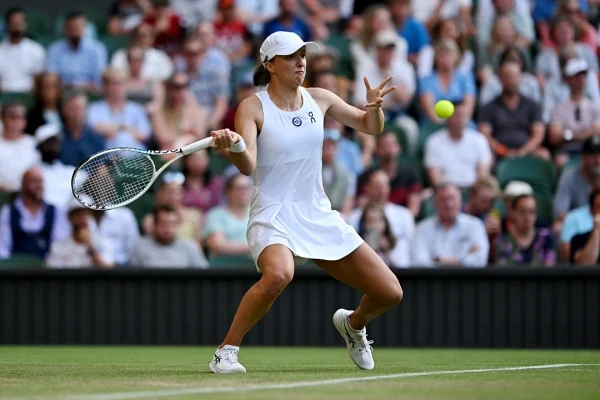
The signs are that she is.
From the moment she stepped out on No.1 Court for her first-round match against Zhu Lin, Swiatek had clearly committed to playing more aggressive, first-strike tennis.
She has struck a collective 79 winners in her three match wins, with opponents Zhu, Martic and Sara Sorribes Tormo combining for just 24.
Those 79 winners – 43 from the forehand alone – contrast with 51 unforced errors in what has to date been a clean, efficient campaign.
Her serve speed peaked at just under 190km/h against Martic, and she has approached the net 30 times, winning 70 per cent of points.
Aggression from the baseline, powerful serving and moving forward are all elements which typify grass-court success, and it is an approach which bodes well for Swiatek entering the second week.
"With Iga, it's about mentality... sometimes it can be her greatest enemy out on the court at different times,” Pratt observed.
“If she can just settle, and be okay (with the fact) that sometimes she's going to be rushed (on grass) against the bigger hitters, and find a way to get herself back into the rallies and not try and overplay, I think that's a really important option for her.”
Bencic is exactly the kind of player who could rush Swiatek, with her flat stroke production and uncanny ability to hug the baseline, take balls early and redirect them.
The Swiss said she is excited by the challenge and confident in her abilities to raise her game against the best players, but is nevertheless wary of what Swiatek can do.
Like Pratt, she highlighted Swiatek’s movement.
“I think no one has ever moved like that in the woman's game like her,” said Bencic, the 14th seed.
“She's the best in the world and she's winning a lot of the matches. She is very consistent.”
Swiatek said she was happy to be playing solidly and hoped to maintain this against Bencic when they clash on Sunday.
Her growing comfort and stability on the surface, plus her consistent results, have some observers considering the possibility the Polish star could go all the way at Wimbledon this year.
"It’s a little premature (to pick her to win the title) in the sense that I do think there's some very, very good grass-courters (left in the draw),” Pratt said on this week’s episode of The AO Show podcast.
“There's still a long way to go in the tournament, but certainly positive signs for Iga."
